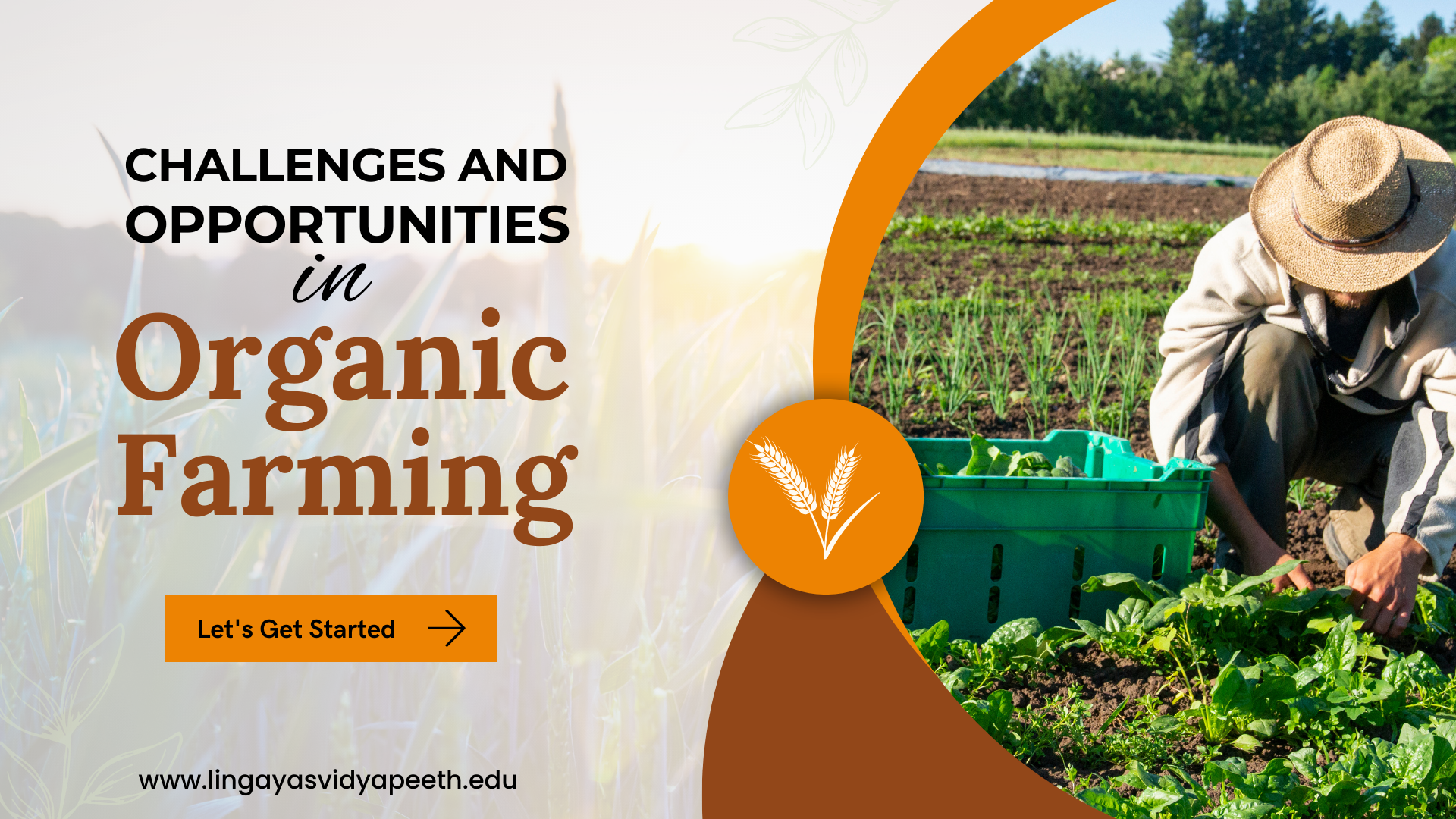Home » What are the Challenges and Opportunities in Organic Farming?

Organic farming, the agricultural practice that prioritizes natural processes and avoids synthetic inputs, has gained significant traction in recent years. Consumers are increasingly drawn to the perceived health benefits and environmental advantages of organic produce. However, the road to widespread organic adoption is paved with both challenges and exciting opportunities.

The future of organic farming is bright, but it will require addressing the challenges and capitalizing on the opportunities. By investing in research and development, supporting farmers through policy and infrastructure, and educating consumers about the benefits of organic food, we can create a more sustainable and equitable food system for all.
From
Dr. Ravi Prakash Mishra
Asso. Prof./ Head
School of Agriculture
Lingaya’s Vidyapeeth
Best B.Sc Agriculture Colleges in Faridabad
Lingayas Vidyapeeth stands as the top colleges for agriculture studies, providing students with comprehensive knowledge of trending farming practices and the benefits of organic farming. With a focus on practical learning and industry relevance, graduates are equipped to address the challenges and opportunities in the ever-evolving field of agriculture.
Join us to kickstart your successful agriculture career!
April 30, 2024
RECENT POSTS
CATEGORIES
TAGS
Agriculture Agriculture future AI Architecture artificial intelligence BA English BA Psychology BTech CSE BTech Engineering Business management career Career-Specific Education career guide Career Opportunities career option career scope Civil engineering commerce and management Computer Science Computer science engineering Data science degree education Engineering Engineering students English Literature english program Exam tips Fashion Design Fashion design course Higher Education Journalism journalism and mass communication law Law career Machine Learning MA Psychology Master degree mathematics MBA Mechanical Engineering Pharmacy Psychology Research and Development students
University Address: Nachauli, Jasana Road, Faridabad, Haryana
Toll Free: 1800-120-4613
Mobile : 8447744303 | 8447744304 | 8447744306 | 8447744309
Address: C-72, Second Floor, Shivalik, Near Malviya Nagar,
Above HDFC Bank, New Delhi 110017
Ph.No. - 011-46570515 / 45138169 / 41755703 / +91-7303152412
Jagmani Kutir, Ground Floor, Road No-1, Rajeev Nagar,
Near Darbar Marriage Hall, Patna-800024, Bihar
Contact No: 9818352069/8130120095
Mail: [email protected]
Copyrights © 1998 - 2025 Lingaya's Vidyapeeth (Deemed To Be University). All rights reserved.
It is important to note that the following email IDs and domains are fraudulent and do not belong to our university.
LV only conducts physical/online verification of any document related to examination on the following email id: